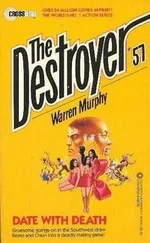He had been aware that when Thebos married a movie star, Skouratis wedded an opera star, and then Thebos married and divorced the widowed wife of an American president.
He became very aware of that when he had been directed to put up two hundred thousand dollars to shoot a picture that sold for two thousand, which at the time he did not understand. The two hundred thousand dollars went to buy an old World War II submarine and to refit it, and there were special Japanese lenses on a special German camera body. There was eighteen thousand dollars for the photographer and there were many payoffs to many people just to get this submarine and special camera close to Thebos island in the Aegean. There the photographer shot nude pictures of Thebos' wife and later sold them to a pornographic magazine in America for two thousand dollars. Net loss: one hundred and ninety-eight thousand dollars. It seemed like an absurd investment, but being the sort of banker he was, he did not question a man of Skouratis' genius.
The banker was also aware of a transfer of funds shortly after Demosthenes' daughter Tina, after whom the yacht was named, started seeing a famous gigolo. The gigolo was introduced to Tina at a Thebos party. The gigolo was found in a Paris gutter one spring morning after several fund transfers. That is, most of the gigolo. He had been sexually mutilated and the rest of him was served on a silver platter to Aristotle Thebos at a restaurant in Lucerne the next night.
The restaurant owner, of course, knew nothing of how the obscenity occurred. The next day, the banker transferred a gross amount of funds to the restaurant.
After that, Aristotle Thebos married Tina Skouratis himself, although she was twenty and he was fifty-seven. She committed suicide within a year.
By saying that Thebos' and Skouratis' relationship was one of friendly cooperation, the Swiss banker had meant: based on things that did not hurt vital interests. By vital interests he meant profits. Therefore the competition between the two men could be called friendly.
"I built the great ship against Mr. Thebos, because I wanted a symbol floating in every port saying I was the greatest, and by greatest, I mean better than that pretty silver-haired vomit upon the earth, Aristotle Thebos. When I failed, he reminded the world of my failure with a party. Then I could not scrap that giant financial drain. I could not because I would not."
"But you salvaged everything with the sale to the United Nations."
"Correct. Until it became a death ship. He is going to turn it into a useless hull, sitting somewhere unused by man, a monument against me, just as I had it built against him. Just as I used Sir Ramsey Frawl, who was Thebes' lover."
"I didn't know Sir Ramsey was a homosexual."
"He was British nobility. He would mount a mongoose if it stayed still."
The banker did not mention that he thought similar things about Greeks. And Swedes. And about just about everyone else but the Swiss. And he was not altogether sure of his Uncle William. He certainly hoped Mr. Skouratis kept the towel around him tightly wrapped.
"Sir, how do you know Mr. Thebos is behind the killings?"
"One, the killings began after I made my profit. Two, the killings required skill and coordination and a knowledge of ships and a great investment of money. Three, it serves absolutely no purpose but to make the ship unusable. There is no such place as Scythia anymore. The Scythian Liberation Front is to liberate no one. It is an excuse. It is that person's way of saying to me, 'ha ha ha.'"
"Is it possible that it's just some madman?"
"No. It has taken years and millions to transform my beautiful monument to me into an ugly beast of death. Madmen are not that well organized. But if there is any doubt in your mind, guess who is sponsoring a lavish party? Tonight and tomorrow night. Two nights of parties for the delegates aboard the ship. And guess who the party is a tribute to?"
"You, Mr. Skouratis."
"As of now," said Skouratis softly, "I am defeated. I am becoming the new Howard Hughes. I know why he became a recluse. It started with pride. Then pride is injured over one incident and you avoid one party or one public exposure in order that that incident not be brought up to you and from there it becomes a habit. You slide into your own grave alone, down a chute greased by your own money. If I were a workingman I would have to face the morning and the ridicule and would adjust to it in some fashion. But when you can live alone on a yacht and avoid that first sling of ridicule, you tend to do it one day at a time until there are no more days and no more time."
"Why are you telling me these things, Mr. Skouratis?"
"Because we are going to war and I want you to know the mind of your commander in chief. I might as well go to war. I am a dead man anyway. There is much you have to do."
The banker took notes of instruction for two hours. At the end of it, Demosthenes Skouratis smiled like a toad digesting a plump fly. And it was the banker who reached for the Maalox to ease the burning fires in his stomach.
They were right. You didn't feel the waves up front because the Ship of States didn't ride the waves. It crushed them.
Remo strolled Deck 18, which was very much like riding the Empire State Building out to sea. You saw the sea way down below you, moving way down there, and you knew it only because you had been told it. Otherwise you would sense you were very high up in a place with good air, heavy with the rich salt of the planet's early time, America back behind you, Africa somewhere ahead of you, because you were still. It was as quiet as a goblet on a table in an empty monastery. The forty-fifth person that day came up to Remo to tell him how fast they were really moving, amazed at modern technology.
There was to be a grand party late that night in the world stadium, thrown by Aristotle Thebos in tribute to his countryman, Demosthenes Skouratis. Steaming along a half mile from the Ship of States Remo could see the Thebos yacht, Ulysses.
UN Security Command had issued a statement on the teletypewriter in every consulate security office that the ship was now safe. Chiun had instructed Remo that there was no need to inform others of a secret that now belonged to the House of Sinanju. This meant that the Iranian government also should not know of the ship within a ship. There was a proper time for everything and this was not the time.
"Hi, there. You look lonesome," said a young woman. She was a dark woman with a healthy glow over regular features, someone more attuned to the scrub brush than the cosmetic pad. Face and body gave out a glow of health.
Remo looked back toward where America was. "Yeah, I guess I am."
"My name is Helena. I saw you board with the Oriental."
"How? There were so many people boarding through so many entrances, how'd you spot me?"
"I used binoculars. I thought those trunks were interesting. Korean, aren't they?"
"Yes," said Remo.
"They're very interesting. They look as if they cover many dynasties and many periods."
"You're an expert on Korea?"
"Yes. And many things."
"Where do you teach?"
"I don't. Father wouldn't let me. I've never been to a school. But I read a lot and when I see the name of a professor on a book I like, I get him."
"Get it," Remo corrected.
"Him," the woman said. "The professor. But Daddy makes me keep it quiet. He says no man likes a woman who thinks. What do you think?"
Remo looked at the young woman questioningly. He raised an eyebrow, then shrugged and looked back down at the Atlantic way below. The sun was going down pink over America. Darkness lay ahead.
"What do you think about women who think?" Helena asked.
"I don't dwell on those things."
"What do you dwell on?"
Читать дальше


